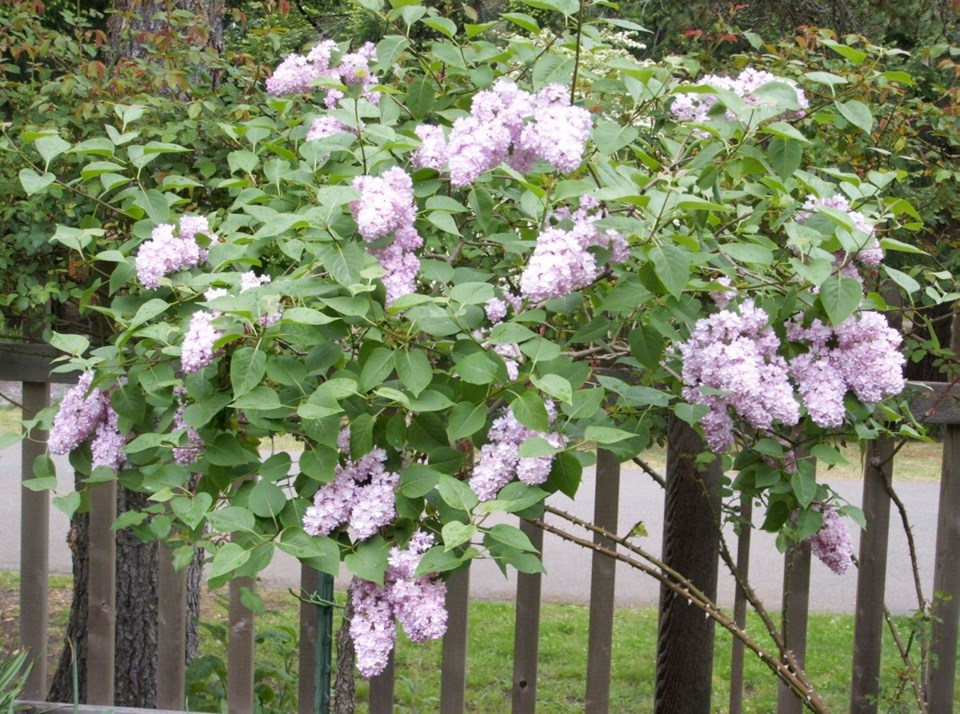Dear Helen: By the end of August, my zucchini, tomato and pea plants were afflicted with some sort of mould. The听plants grow in boxed beds, each 60听centimetres by听120 centimetres. I do not water overhead.
P.D.
By late summer, squash, cucumber, pumpkin and some other vegetable plants usually do become at least partly covered with a whitish, dusty coating of powdery mildew. The fungal spores are everywhere at that time. Cutting off affected leaves does not help.
Because new leaves are resistant to powdery mildew infection, keeping plants like zucchini growing actively through September with watering and feeding with fish fertilizer helps to prolong fruit production. Early-summer second plantings of peas and zucchini will remain largely unaffected by powdery mildew because the plants will still have fairly new leaves in late summer.
Overhead watering, or regular rinsing, of squash and cucumber plants actually slows the spread of mildew, though the practice is not wise for tomatoes, because wet leaves make the plants susceptible to听late blight.
You might also consider widening your planting boxes. The 60-centimetre width is听rather confined for vegetables of significant size. A larger root run, which would also be easier to keep thoroughly moist, would make life more sumptuous and healthful for the plants.
听
Dear Helen: Parts of my garden still need severe pruning back following a wild flush of growth in the spring and a busy summer attending to other gardening activities. Is this a good time to prune?
G.W.
Generally speaking, early-fall pruning of shrubs and trees is not recommended, because enough mild weather remains to听prompt fresh, soft growth that will be听vulnerable to winter damage. The advice is usually to wait until later in the听fall and cooler weather. Most major pruning is done in late winter and early spring.
Keep in mind, too, that pruning spring-flowering plants now will remove buds that are set to bloom in the spring. Prune these plants, such as forsythia and lilac, right after they finish flowering.
Summer pruning helps to tame overgrowth, but summer this year was hot enough to make pruning hard on most plants. And as you note, most of us were occupied with other gardening tasks through the summer.
That leaves more than a few gardeners with overgrown areas in their gardens. Given useable weather, I鈥檒l be bending the听rules a bit by starting next month to听tame unruly plants for a fresh start in听the spring. I often prune climbing roses in the fall. I choose mild, dry periods in autumn and winter for the work. Pruning in wet or freezing weather exposes plants to diseases and frost damage.
听
Dear Helen: Something has been eating and destroying the shoot tips and flower buds on my roses this summer. All I鈥檝e been able to see on affected growth are some tiny white grubs.
B.K.
You are most likely dealing with rose midge, a tiny fly that lays eggs on emerging leaf and flower buds. Resulting larvae feed there, causing the buds to wither and blacken. An unchecked infestation can result in complete loss of bloom.
The larvae feed for around a week before dropping to the ground and spinning cocoons within which to pupate in upper soil layers. Adults emerge from the cocoons to start another cycle of egg laying. There are multiple generations, from early spring to late October, with numbers of the pest growing through the summer months.
To prevent this population buildup and听halt the cycle as much as possible, prune out all affected shoot tips and buds at the first sign of an infestation. Destroy, do not compost, this material. Burn, freeze听or trash it. Or, cook it in a sealed plastic bag left exposed to the hot summer sun.
To prevent larvae from pupating in the soil, lay a barrier of cardboard, newspaper, landscape fabric or plastic sheeting under the plants. Lift the barrier carefully once a month and replace it with fresh material.
Pyrethrins applied every two weeks offer some protection; however, this is the least desirable control. The sprays destroy beneficial insects that help control rose pests. Insecticides can damage the leaves and flowers. Also, rose midges can become resistant to any product used repeatedly.
听
GARDEN EVENT
Chrysanthemum meeting. The Victoria Chrysanthemum Society will meet on Saturday at 1647 Chandler Ave. at 2:30 p.m. The meeting will feature a parlour show.
